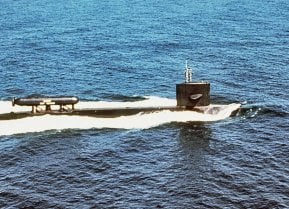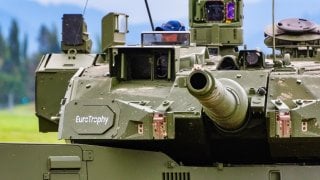NATO vs. Russia: How to Ensure Conflict Is Avoided
To preserve or reassert its standing as a great power and guarantee its security, post-conflict Russia will almost certainly seek to push the military threat it sees emanating from Europe as far away from its border as possible. Is coexistence possible after the Ukraine war?
After the Ukraine Conflict, Competitive Coexistence is the Best Option: Being a great power lies at the center of Russian national identity. Even when Russia was weak compared to its rivals, Russian leaders continued to believe that their country was a great power, just one temporarily down on its luck. They did what they could to reassert Russia’s prerogatives as a great power on the world stage. This is exactly what Vladimir Putin did after he rose to power a quarter century ago at a time of economic collapse and political disarray in Russia. He has done that in large part by resisting what he sees as a U.S.-led effort to erode the foundations of Russian power.
For that reason, the outcome of Russia’s war against Ukraine, whether it is a win or loss, is unlikely to cause Putin, or his successors, to abandon his strategic ambitions, although he might adjust his tactics. Three developments that could change that assessment: a democratic breakthrough, the breakup of Russia, or its economic collapse. These are all remote possibilities.
Rather, Russia will likely remain a recognizable version of its historical self: authoritarian in domestic political structure, expansionist in foreign-policy impulse, economically and technologically lagging behind the world’s leading powers, yet determined to play the role of a great power. It will retain formidable assets to advance its goals, including one of the world’s largest nuclear arsenals, significant space and cyber capabilities, the world’s largest endowment of natural resources, and a veto-wielding permanent seat on the UN Security Council. As a result, Russia will remain a serious challenge to the United States and NATO.
To preserve or reassert its standing as a great power and guarantee its security, post-conflict Russia will almost certainly seek to push the military threat it sees emanating from Europe as far away from its border as possible. That will produce constant pressure along the long NATO/Russia frontier, which will stretch from the Barents Sea to the Black Sea until arms control measures alleviate it, an outcome that is unlikely for at least the next decade.
Russia will also use cyber tools, covert action, and preferential treatment of certain European states in a continuing effort to retard, if not reverse, the consolidation of a European political entity that would dwarf Russia in population, wealth, and power potential much as the United States does today.
The inevitable tension does not, however, doom the United States and NATO to an intense adversarial relationship with Russia, forever teetering on the brink of direct military confrontation. Mutually-agreed coexistence is possible, even if it will be competitive. Achieving that end-state will require the United States and NATO to balance deterrence and diplomacy, containment and engagement, in their Russia policy.
While maintaining a strong deterrent posture, NATO members should restore normal diplomatic relations with Russia to engage in shared interests, such as climate change, and manage ongoing disputes over, for example, security arrangements. NATO members should gradually ease sanctions to permit the restoration of mutually beneficial commercial activity and people-to-people exchanges. They should even allow Russia to reenter energy markets, as long as guardrails against excessive dependence are put in place.
Further, NATO members should pursue arms control measures, akin to those signed as the Cold War faded away, to ease tensions along the frontier.
This end-state is far from the ideal of strategic partnership that enticed Western and Russian leaders as the Cold War ended. But it is perhaps the best possible outcome in the world of intensely competing global and regional powers that is rapidly emerging.
About the Author:
Thomas Graham, a distinguished fellow at the Council on Foreign Relations, was the senior director for Russia on the National Security Council staff during the George W. Bush administration.
Image Credit: Creative Commons and/or Shutterstock.


